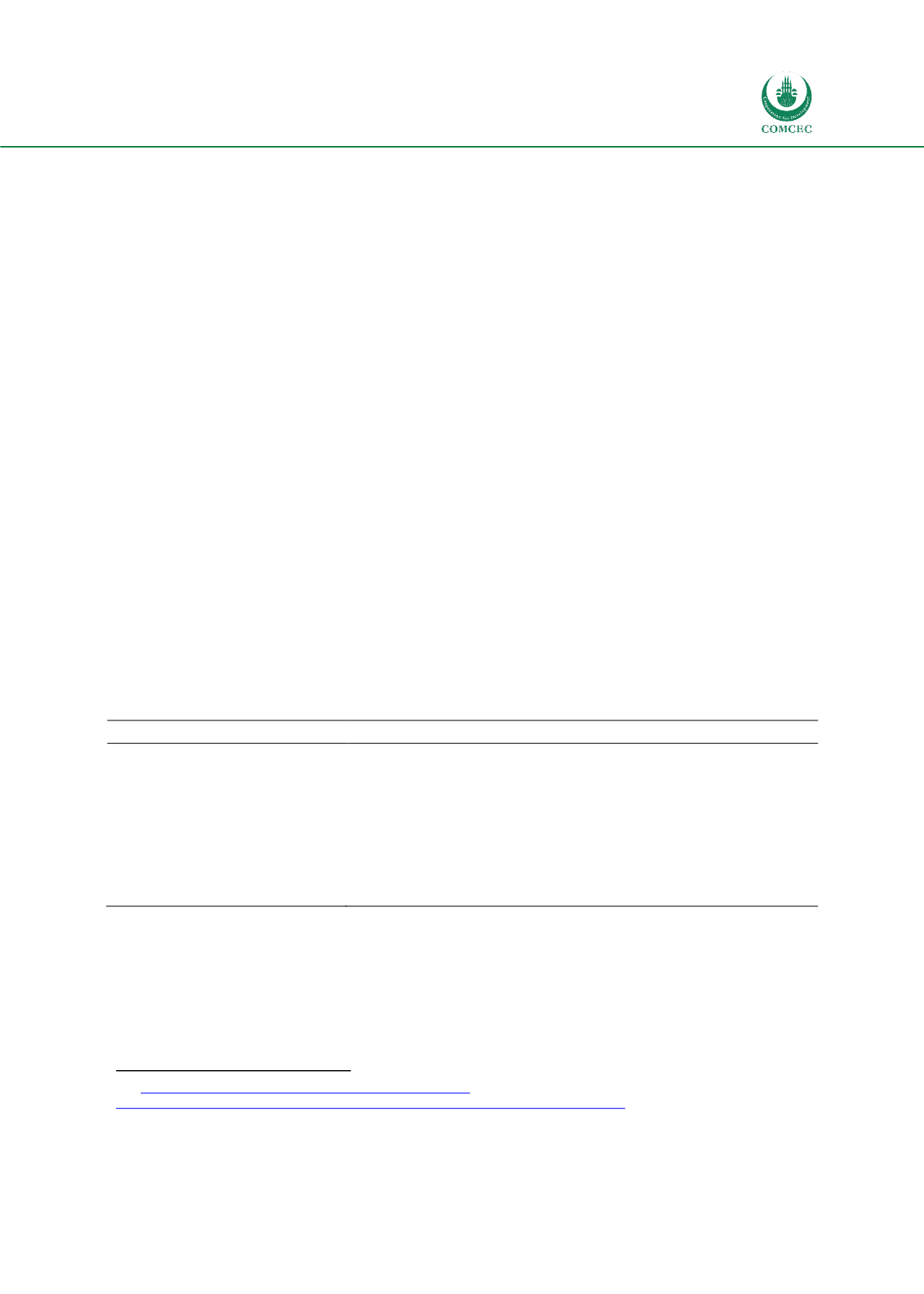

Improving the Border Agency Cooperation
Among the OIC Member States for Facilitating Trade
89
capital in ASEAN countries. ASEAN has negotiated and concluded free trade agreements with
the main regional economies China, Korea, Japan Australia, New Zealand, and India.
Malaysia is a member of the World Trade Organization, and the country has ratified the WTO’s
General Agreement on Tariffs and Trade (GATT). Since late 2013, Malaysia has also been
compliant with the WTO Trade Facilitation Agreement (TFA), except for articles regarding
expedited shipments (Art. 7.8) and for advance filing and processing of transit documentation
and data prior to the arrival of goods (Art. 11.9)
158
. Malaysia is also an active member of the
World Customs Organization, and the country has signed the Revised Kyoto Convention (RKC)
and expressed its intention to implement the WCO Framework of Standards to Secure and
Facilitate Global Trade (WCO SAFE).
Border Control Agencies
The Malaysian Royal Customs is the frontline border control authority in Malaysia. Customs
officers at the Malaysian borders enforce not only the customs law but also numerous other
regulations on behalf of other government agencies
159
. For example, customs officers control
pharmaceutical goods at the border for the Malaysian Ministry of Health: when the customs
officers encounter suspicious shipments of pharmaceuticals, they typically contact subject
matter experts at the Ministry of Health. In total, there are more than 20 permit issuing
authorities in Malaysia that regulate and control imports and exports of pharmaceutical,
weapons, animals, food, and many other commodities. All Malaysian authorities that have
interest in cross-border traffic follow their standard operational procedures and have their
own priorities. Malaysian government sources assure, however, that the government agencies
are collaborating to expedite flows of cargo and passengers across the border. The table
presents some important Malaysian government agencies that have an interest in cross-border
traffic.
Table 13. Malaysian government agencies that have an interest in cross-border traffic.
Border agency
Role
Royal Malaysian Customs
Department (RMCD)
Collection of customs duties, border enforcement, and narcotics
offences.
Malaysian Civil Aviation Authority
Oversight of aviation security & safety
Malaysian Police forces
Security and safety of the emirate / crime control in general, including
the fight against drug trafficking
Malaysian Health Control authority Food quality, animal and plant health
Malaysian Maritime Enforcement
Agency
Enforcement of Malaysian territorial waters
Source CBRA analysis
At the policymaking level, the Ministry of International Trade and Industry (MITI) sets general
directions for achieving goals of International Trade and Industries. MITI also co-manages
many important working groups on trade facilitation, including the Focus Group on Trading
Across Borders (FGTAB) and the National Logistics Task Force with Customs. FGTAB has three
focus areas that need improvement: reduce the number of documents and clearance times,
15
8 https://docs.wto.org/dol2fe/Pages/FE_Search/FE_S_S009- DP.aspx?language=E&CatalogueIdList=126077&CurrentCatalogueIdIndex=0&FullTextHash =(accessed 10 June 2016)
159
Especially rules pertaining to the enforcing of Poisons Act 1952, Dangerous Drugs Act 1952, Sales of Drugs Act 1952 and
its regulations which regulate importation and exportation of all scheduled substances/chemicals under these Acts,
pharmaceutical products and cosmetics into Malaysia.
















